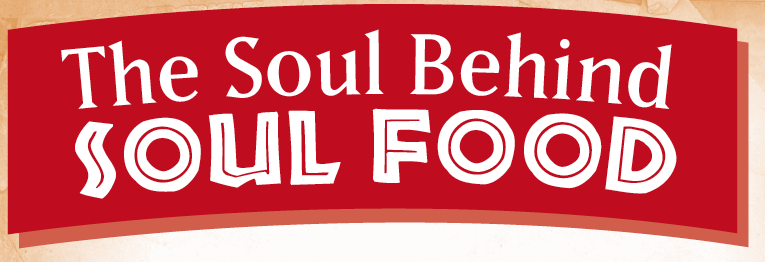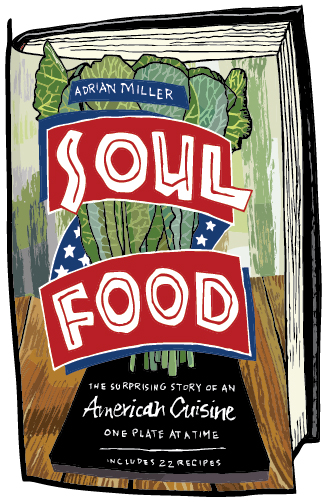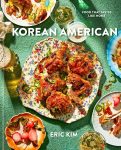Ari Interviews Author Adrian Miller

 On Tuesday, April 22 at 7pm Zingerman’s Roadhouse will host a very special dinner with Adrian Miller, author of Soul Food: The Surprising Story of An American Cuisine, One Plate at a Time. Chef Alex has created a menu direct from the chapters of Soul Food and Adrian will share his knowledge and the history of the foods we’ll be eating at the dinner.
On Tuesday, April 22 at 7pm Zingerman’s Roadhouse will host a very special dinner with Adrian Miller, author of Soul Food: The Surprising Story of An American Cuisine, One Plate at a Time. Chef Alex has created a menu direct from the chapters of Soul Food and Adrian will share his knowledge and the history of the foods we’ll be eating at the dinner.
Ari and Adrian recently chatted about the book:
I loved the book. I think anyone who’s interested in food and history should definitely read it. Can you give folks a sense of what the book covers?
The book is an edible tour of African American history from West Africa to the American West. Since culinary history can be a vast subject, I thought the best way to tell a concise story was by way of an “anatomy of a meal.” I created a representative soul food meal, and I wrote a chapter on every part of the meal and explain what it is, how it got on the soul food plate and what it means for the culture. In most chapters, I include traditional, health-conscious and fancy recipes. One of my main objectives is that people get in the kitchen and cook soul food.
How do you think this historically accurate description of soul food differs from what the average American thinks about it?
In my experience, the average American has maybe heard the words “soul food,” but they really don’t know what it is. For those in the know, they think of something boiled for hours, deep fried or gloriously sweet that ultimately is unhealthy eating. It raises the questions the food writer Donna Pierce asked more than a decade ago: Does soul food need a warning label? Others have adopted the narrative that soul food is the master’s unwanted food or leftovers.
I learned so much from it. If writing is at all you for you like it is for me, I’m guessing you learned a lot too. What are some of the learnings that surprised you during the writing?
Yes, we are kindred spirits, my man! Three big things jump out at me right away. The first surprise is that when I discovered what enslaved African Americans actually ate, the cuisine came close to what we now call “vegan.” They were eating vegetables in season, there was very little meat, and processed foods were a luxury. The second surprise is that, in most situations, master and slave were eating from the same pot. That information completely upends the idea that soul food is slave food. The third surprise is the high-class pedigree of so many soul foods. We tend to think of foods that black people eat as “poverty food” but rich folks were grubbing on it too. Context is important.
You say that the book is a love letter .. . say more about that?
Soul food has such a horrible reputation that I believe it causes people to discount the culinary genius of soul food cooks. I thought it was high time that some celebrated these cooks instead of denigrating them.
What are some of the roots of soul food that go back to African culture and cooking?
Jessica B. Harris has done a lot to show the culinary connections between West Africa and the Americas. In terms of the soul food story, we see similar food habits from West Africa replicated here in what would eventually become the United States. Soul food meals usually involve more fish, more green, leafy vegetables and more seasoning with chillis than the typical American meal.
Greens seem particularly important! Can you say a bit more about them?
West Africans figured out a long time ago that eating green, leafy vegetables were good for you, and that culinary legacy is very strong in soul food cooking. Just as tropical climate bitter greens are consumed in West Africa, temperate climate bitter greens get top billing in soul food circles. The most popular are cabbage, collards, kale, mustard and turnip greens. Now that the mainstream has discovered the nutritional benefits of this food, what used to be called “weeds” when African Americans primarily ate them is now called a “superfood.” When I speak on my book tour, I tell kale lovers “Welcome to the party, black folks have been eating that for at least three centuries.”
Catfish?
As I mentioned earlier, West Africans are big fish eaters. I had no idea that there were species of catfish in West Africa, and that smoked catfish is essential to many stews. Knowing this partly negates the idea that enslaved West Africans arrived to the Americas and were forced to eat completely foreign foods. Now we see that were some things that they would have recognized, thus continuing a West African food tradition in a different part of the world. Anyway, African Americans remain big fish eaters to this day, and catfish is the connoisseur’s choice.
To be clear the life of enslaved people was very, very difficult. Can you talk more about it and what it meant for people’s cooking and eating?
Yes, the difficulty for most enslaved people was getting enough food to eat that was edible. Enslaved people were given, on average, a weekly ration of 5 pounds of cornmeal (or some other starch), a couple of pounds of meat that was dried, salted or smoked and a jug of molasses. That’s it. Thus, the enslaved had to figure out how to supplement their diet by fishing, foraging, gardening and hunting outside of the sunup-to-sundown work schedule. They managed successful strategies to survive, but persistent hunger is a consistent theme in slave narratives.
What about mac and cheese – how that get in there?
Yes, another surprise because there’s not a lot of dairy in soul food and this is clearly an Italian dish. Though, I must tell you that there are several older African Americans who believe that white people “stole” this dish from us just like they did rock ‘n’ roll. Mac ‘n’ cheese gets onto the soul food plate by way of the African Americans who cooked in the Big House. Mac ‘n’ cheese was royalty food as far back as the 1300s and remained a prestige dish for centuries, ultimately making its way to the American South. When the plantation owners entertained with mac ‘n’ cheese, it was the enslaved cooks who often made the dish. After Emancipation, it became a popular item for Sunday meals and special occasions.
And it sounds like it’s a similar story with pound cake and peach cobbler?
It is! These desserts are made from ingredients—white flour, white sugar, whole milk–of which enslaved cooks had little access. In the antebellum South, cakes, cobblers and pies were dishes that appeared on African American tables only on the weekends and on special occasions. Just like other high-end dishes, enslaved African Americans were often the ones tasked to do the cooking.
This is your third trip to the Roadhouse to do one of these special dinners. Excited to be coming back?
Definitely! I had such a great time when I did my “Black Chefs in the White House” event on the night of President Obama’s first inauguration. It was a lively crowd, and it just an enjoyable evening. The same was true when I did the tribute to street vendors. On each occasion, Chef Alex “put his foot in it” so the food was wonderful.
Some of your research was done here at the Longone collection at U of M on your trips to Ann Arbor. How was that experience?
The Longone collection is such an incredible resource! For a researching geek like me, it’s akin to going to Disneyland with an E ticket—you can go on any ride through history with the rare cookbooks in that collections. It helped me connect some dots in my research.
How did the Great Migration impact African American cooking?
I firmly believe that the movement of people from the American South to other parts of the country is the key part of the soul food story, more so than the migration from West Africa. Soul food is really the cuisine of migrants who left a particular part of the South (the Deep South) and tried to recreate home—just as other migrants do. They tried to procure, cook and eat the familiar foods of the South, but when they couldn’t they made substitutions and also picked up a few things from their foreign neighbors. Soul food, at its core, is really a limited repertoire of southern cuisine that draws heavily on the celebration foods of the South.
Your family went west rather than to the north. Can you give us a bit of your personal history?
I’m born and raised in the Denver, Colorado area. This information immediately loses me street cred in soul food circles. I win most of them back by sharing that my mother is from Chattanooga, Tennessee and my father is from Helena, Arkansas. My mother followed an older sister to Denver and my father was in the military and came out here because of the Air Force base. They met in church in the late 1960s, and that union brought me into the world. Because I had southern-born parents who embraced the region’s food rather than distancing themselves, I grew up eating soul food.
In reading the book it struck me that nearly every single item you described is either a regular on the Roadhouse menu or appears fairly often as a special. I realized we actually have a darned good soul food restaurant on our hands!!
Ha! That’s good to know. I believe that if soul food is to survive, it has become accessible. That means people who are not African American need to feel comfortable making and eating this cuisine at home and in restaurants. Some African Americans will have to let go of the notion that white people can’t cook in general, and in particular with this cuisine. I heard that a lot in interviews! Accessibility explains the profound popularity of other ethnic cuisines like Chinese, Italian and Mexican (really Tex-Mex). Much like African Americans, these ethnic groups were at the margins but their food became socially acceptable.
You and I have known each other ten years ever since we met at the Southern Foodways Alliance symposium. We’re both big believers in the work of the organization. Can you tell folks a bit about it?
I love the Southern Foodways Alliance! Not only because it celebrates the diverse food cultures of the South, but also because it creates a space for very different people to connect through food. It shows that if we just took a moment to learn more about what we cook and eat, we’ll see that we have a lot more in common than what supposedly divides us.
The weekend of May 31 and June 1 we have our 5th annual Camp Bacon which is a fundraiser for SFA. Maybe you should come back for it?
I would love that! Dig this, I never went to camp when I was a kid. It would be awesome to go to a really fun camp when I’m an adult!
What else would you like us to know about Soul Food the book, or the food?
I want people to understand that soul food deserves much more appreciation that it currently gets. Soul food doesn’t need a warning label…it needs more love. African American cooks belong to a very rich culinary tradition, and I hope that my work is an appetizer for more investigation into this unique heritage.
![]()




Zingerman’s Art for Sale